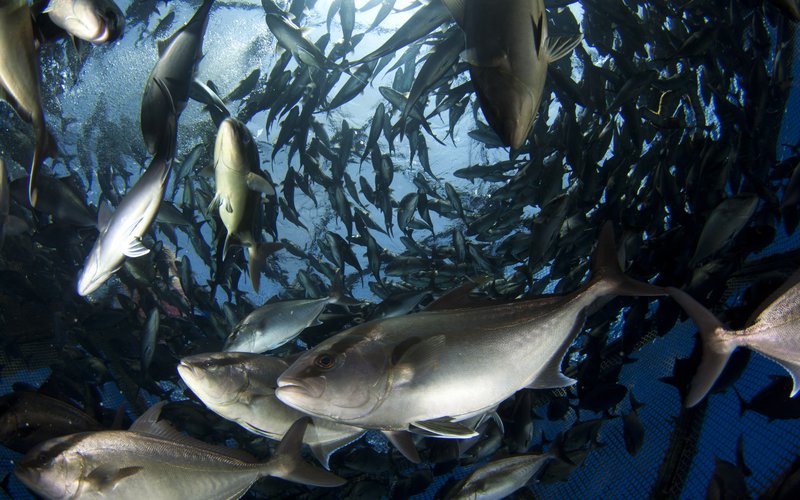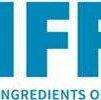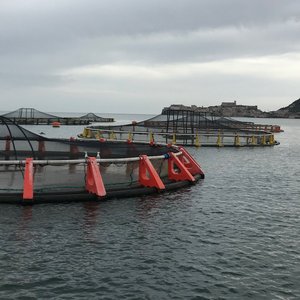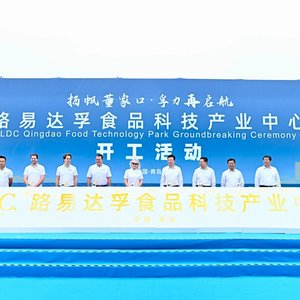Researchers in Kona, Hawaii, have made a breakthrough in the quest to develop a cost-effective “fish-free” feed for farm-raised Kampachi, or almaco jack, a carnivorous marine fish prized for its rich, buttery flavor. “This is the first time – to our knowledge – that fishmeal and fish oil have been totally eliminated from the diet of a marine carnivorous fish, with no deleterious consequences,” said Neil Anthony Sims, CEO of the Hawaii-based mariculture company, Ocean Era, where the trial was conducted. “Kampachi is a fast-growing, sashimi-grade fish, so this a significant breakthrough for the sustainability and scalability of marine fish farming.”
During the three-month trial, 480 juvenile Kampachi (Seriola rivoliana) were fed one of four diets. Two of the diets contained no fishmeal and one of these also contained no fish oil. Fishmeal replacement relied primarily on poultry meal from up-cycled poultry trimmings. Fish oil replacement was achieved using Veramaris® natural marine algal oil. A fishmeal and fish oil diet was used as a control, together with an additional commercial control diet. Fish were stocked into 16 tanks for the comparative grow-out trial. The performance was evaluated in terms of growth, feed conversion ratio (FCR), fillet yield and survival.
Fish that were fed the zero fishmeal/zero fish oil diet performed as well as the fish fed with the fishmeal and fish-oil diet. Fish fed the zero fishmeal/zero fish-oil diet also had a more desirable taste compared to the fish fed the commercially available control diet. “The results clearly show that algal oil can replace fish oil 100% without any reduction in the growth of this marine fish,” said Rick Barrows, a fish nutrition expert with Aquatic Feed Technologies and co-principal investigator of the study.
The feed formulations used in this trial are available as open-source formulae through the F3 Feed Innovation Network (F3 FIN) for anyone working to replace wild-caught fish ingredients in animal feed. F3 FIN encourages sustainable innovations in fish-free aquaculture feed ingredients by sharing experimental protocols, testing facilities and ingredient providers.
“Development of diets that use these upcycled ingredients and microalgal oils is critical to the long-term scalability of marine fish culture, and therefore to our ability to sustainably feed a planet of nine billion people with heart-healthy seafood,” said Sims.
The project, titled “Developing cost-effective fishmeal-free and fish oil-minimized diets for high market value U.S. marine fish aquaculture,” was funded through NOAA’s Saltonstall-Kennedy Grant Program (NA18NMF4270208). The United States Department of Agriculture’s (USDA) Agricultural Research Service provided feed milling support for the trial. Anthropocene Institute and Ka'upulehu fishponds were collaborating partners on the NOAA grant.
See the results here.













